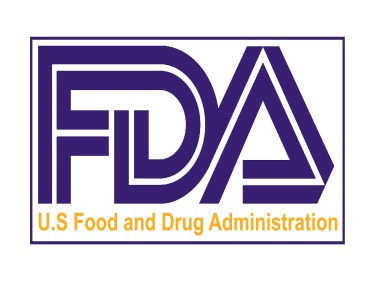Will the FDA regulate CBD? It’s a question on many minds as the FDA commissioner is to appear before the U.S. House Oversight Committee. Chairman of the Committee, James Comer, wants details on CBD.
He said: “It’s not just their lack of action with respect to CBD and other types of hemp. It’s their inaction regarding a lot of areas of their jurisdiction … We’ve got an agency here that has a big budget, they have a lot of employees, but it doesn’t seem like they are getting a lot of their work done and have a huge backlog there.”
Nearly five years after the 2018 Farm Bill legalized hemp, the official FDA stance is that CBD is not a food or dietary supplement. Until they’ve gathered more safety data, they’re not interested in regulating it as a food or supplement.
Therefore, CBD exists in a wild-west market. But what does this mean for everyday Americans? And what happens when the FDA does move to regulate CBD?
FDA to Regulate CBD?
Conventional wisdom says having the FDA regulate CBD will result in a stabilized, regulatory market. But as with everything government related, there are unintended consequences.
“The “market chaos” right now is that suppliers have a hard time describing their product compared to 325mg aspirin tablets,” writes economist Mark Thornton by e-mail.
He expects that even without FDA regulation, consumers will discover reputable brands from the market process. “Product definition and safety will be refined,” Mark writes, “This creates “market power” and cleans up most of what others call “chaos.” With pure legalization, the black market would disappear leaving only commercial and home production.”
And indeed, this process is already underway. Inesa Ponomariovaite, CEO of Nesa’s Hemp, is one of these reputable brand names. However, she supports the FDA’s move to regulate the industry.
“Let them have it,” she tells CLN by phone.
When Inesa started her business, she found a “major disconnect” between what the industry was doing and what they were telling consumers. Even lab-tested products are only sometimes reputable. Inesa says even the laboratories themselves can be inefficient or corrupt.
“From the top, we have no regulations, and that’s what concerns me,” she says. “I’ve personally tested so many products because I was looking for the highest quality product for my clients and patients. I tested these products and I found mould, lead, mercury, and that’s why when people say, ‘oh, I took CBD and it actually caused me anxiety, or nausea or whatever,’ well, yeah. It’s because the product is loaded with toxins.”
What Will FDA Regulation Lead To?
What are the unintended consequences of FDA regulation? In the past, FDA regulation has been no guarantor of safety. They’ve recalled many drugs before. People have gotten sick and even died ingesting FDA-approved substances. Not to mention the familiar faces of top-tier FDA personnel and pharmaceutical board of directors.
So what could FDA regulation of hemp and CBD lead to? According to economist Mark Thornton, FDA regulation could lead back to prohibition. But more likely, he writes, “to monopoly power to some extent or another.”
Monopolies, of course, stifle the market’s discovery process and harm patients and consumers in the long run.
But this doesn’t worry Inesa. Her brand focuses on CBDa, not CBD.
As far as she’s concerned, CBD is a synthetic compound. “The only way to have real CBD is by taking the raw plant… and using a chemical extraction.”
She says this is what pharmaceutical companies are after. “They’re going after the CBD chemical compound and you know what? Let them have it.”
CBD (cannabidiol) and CBDa (cannabidiolic acid) are compounds found in the cannabis/hemp plant. CBDa is the acidic precursor to CBD, and you find it in the raw, unheated form of the plant.
With or without FDA regulation, Inesa is confident consumers will realize what they want are the acidic precursors to these cannabinoids. “CBDa is the original compound,” she says, “CBDa is not something pharma can ever patent.”
Of course, some would dispute that converting CBDa to CBD constitutes creating a “synthetic compound,” as this process, known as decarboxylation, is fairly common in the cannabis world. It naturally occurs when you heat the plant, such as smoking, vaporizing, or cooking.
However, to Inesa’s point, less-than-reputable manufacturers in the U.S. produce less-than-optimal CBD. “I never trust the marketing materials,” she says.
Alternatives to FDA Regulating CBD
Do you want a CBDa and CBD market with safe products and informed consumers? Then, looking into the alternatives to FDA regulation is not out of the question.
Nesa’s Hemp, for example, uses a reputable laboratory. This laboratory competes with others for quality control. They win private awards for their quality.
Now, imagine another layer of entrepreneurship. A business that regulates the laboratories to ensure they’re not cutting corners. A private certification agency that competes with other certification agencies for reputation.
The problem with the state is that the buck stops there. If you want to influence the regulations in your favour, you’re best to coax the politicians who make the rules.
As Mark Thornton writes in his book on the economics of prohibition, government bureaucracy “hampers the market’s ability to produce desired solutions.” From the discovery process to product safety and information.
A private certification agency, says economist Walter Block, works better.
“The Food and Drug Administration must go. And salt should be sown where once it stood. This organization is costly, is a gargantuan waste of time and causes needless deaths by slowing down innovation. The sooner is it disbanded, the better.”






